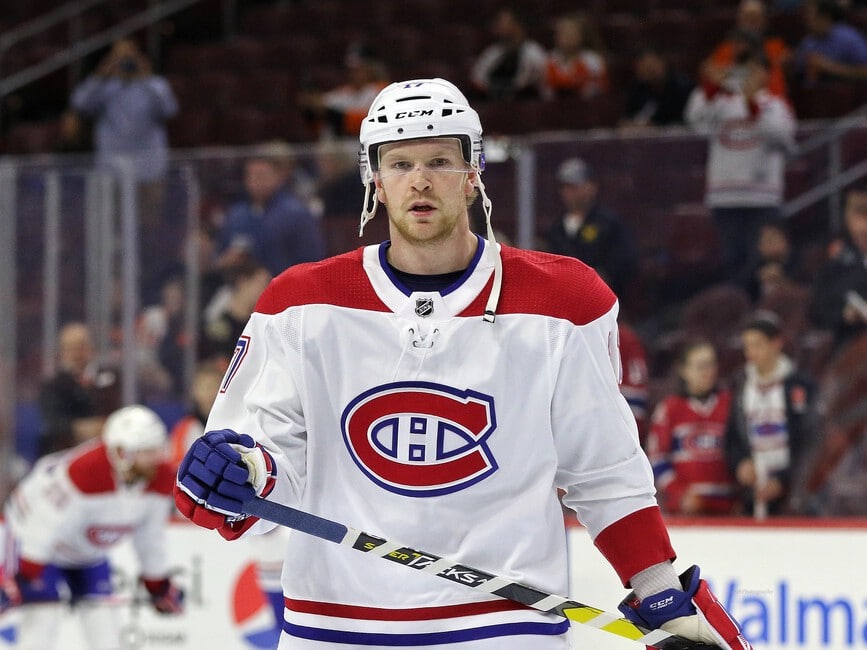After Monday’s NHL Trade Deadline came and went, the Edmonton Oilers added two players. Picking up Brett Kulak from the Montreal Canadiens to improve their blue line depth and then adding Derick Brassard in a second deal meant to offer some forward depth, Holland did what he could with little money and little in the way of assets to send the other way.
Holland addressed the media after the smoke had cleared and talked about why he made the moves he did, and perhaps even more importantly, why he didn’t make other moves. Using just over $600K of cap space to add two assets, reactions are mixed, but a good chunk of the fan base believes Holland did an acceptable job.
All in all, it sounds like Holland would have done more if he could have, but limited funds wrote the narrative of how the deadline went down for the franchise.
The Experience of Derick Brassard
Holland noted that he was pleased with both trades because the Canadiens and Flyers each retained 50% of the salaries of the players coming over. In Brassard, Holland grabbed a player that is costing the Oilers $412K.
Related: Oilers Acquire Derick Brassard: Everything You Need to Know
Brassard has played for 10 different NHL teams and logged 117 playoff games. He can play wing or center, kills penalties and is strong on faceoffs. That depth was important and to get it for such a low cost almost feels like a no-brainer.
Fortunate to Get a Left-Shot Defenseman
Holland said his priority was to grab a left-shot defenseman but also suggested he was lucky to get one. Noting that there were members of the organization that knew Brett Kulak well, what he’s seen of the blueliner is that he’s dependable, can move the puck and they were looking for a guy that could play in the top six. Kulak often partnered up with Jeff Petry in Montreal so he has the wherewithal to log extra minutes and has playoff experience. Holland said he can play anywhere on that left side and wanted someone versatile.

The GM noted that his preference was to get a left-shot defenseman because the Oilers have three righties — Tyson Barrie, Cody Ceci and Evan Bouchard — who play regularly. When you factor in that Kris Russell can slide over to the right side and Philip Broberg can play the right side when he returns from injury, it was the left side where the Oilers needed the most help.
Thoughts About Goaltending
Holland was asked if he even contemplated making a move to grab another goalie. His response was, when both goalies are healthy, “I’m comfortable with our goaltending.”
Again, he noted the team was really tight with cap space and they didn’t have a lot of room to play around with the position. It almost sounded like he might have liked to do more if money wasn’t an issue, but Holland didn’t tip his hand about whether he looked at the market. In the end, he’s rolling with what he has and reiterated, he is alright with his tandem of Mikko Koskinen and Mike Smith.
In fairness, there wasn’t a lot out there. Marc-Andre Fleury went to Minnesota in what is believed was one of the only teams he was interested in accepting a trade to. Anton Forsberg was signed by the Ottawa Senators and there weren’t any clear upgrades over what the Oilers had.
Doing The Most One Can With Little
There will be arguments Holland could have moved other money. Whether it meant waiving a player or trading out a contract, those that didn’t like what Holland did will probably suggest he could have gotten more creative. When you look at what Toronto pulled off with little cap space, perhaps that’s fair. It’s especially fair if you argue Holland created his own salary cap problems.
At the same time, the GM seems to like his team and he wasn’t the only GM dealing with major cap issues. The Oilers are on a roll, having won five straight and their numbers look good. His aim was to add some auxiliary pieces to compliment the group, not drastically change it up. He committed to his team early and for better or worse, he’s sticking with it.
It might be the wrong call and this team might not be good enough, but he’s about to find out.